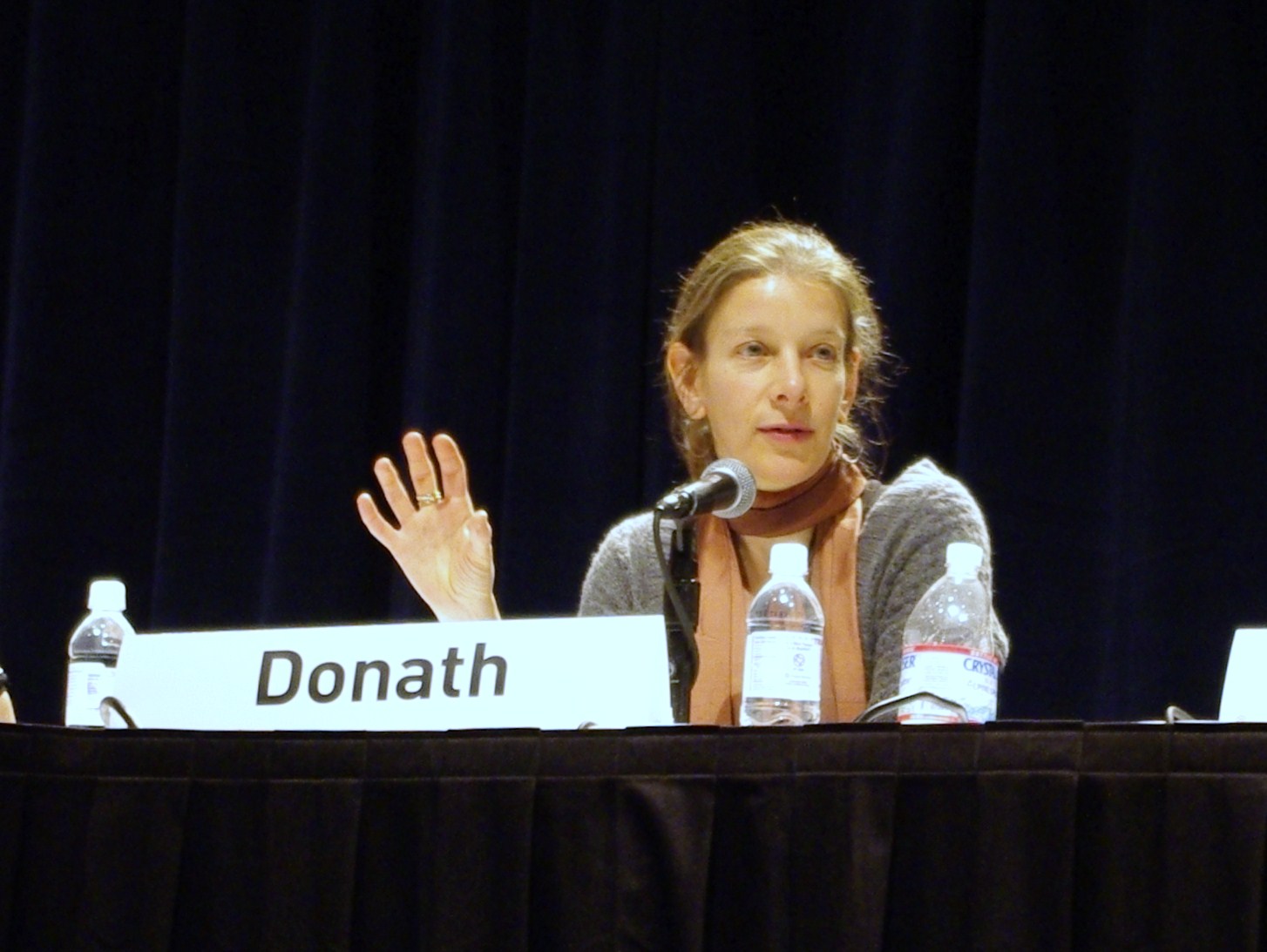Privacy expert calls for a 'digital mirror'
SXSWi 2009: A better way to view our web histories and personas

In order to gain an understanding of how we are perceived online, we need the equivalent of a 'digital mirror', said MIT Media Laboratory's Judith Donath at a day two South By South West Interactive panel entitled 'Is Privacy Dead or Just Very Confused?'
Led by Microsoft researcher Danah Boyd, the panel - which also included Siva Vaidhyanathan, Associate Professor at the University of Virginia, and Alice Marwick, PhD Candidate at New York University – grappled with the complex issues of privacy in a digital age.
Having spent time talking to teenagers about their perception of privacy, Boyd says she found that the very notion of privacy had been "ruptured" by new technology. "What does it mean when you are on Facebook or MySpace and you're trying to negotiate different audiences," she said. "How do you negotiate privacy when you don't have control over how far your information spreads?"
Siva Vaidhyanathan, who is writing a book called The Googlization of Everything, said that it's wrong to believe that privacy is the opposite of publicity: "Just because you or I puts up 100 or 200 aspects of our lives on publicly accessible sites, that doesn't mean that we don't care about the 101st.
"It doesn't mean that we're not just as concerned about what we don't share. And so the very notion that a lot of us are over-sharers doesn't necessarily undermine or mitigate the general concern for individuals being able to control and influence how they are represented in the world."
Alice Marwick is writing a dissertation on the effects of social media on social status. She says there's a real value in putting this public information out there: "I've interviewed CEOs who said they would never hire anyone without a Facebook profile, that if they are going to be hiring someone to work in the technology sector they expect them to be familiar with the latest technologies."
Marwick adds that there is also a great social value to becoming a part of online groups and making friends online: "There's a sense of social support which you get from this publicness, which in some cases can be really profound. I've had friends who've gone through very difficult things and they've put out into the world 'this is the thing I am going through, I'm looking for online support' and they've got very real emotional support."
Get daily insight, inspiration and deals in your inbox
Sign up for breaking news, reviews, opinion, top tech deals, and more.
We should recognise the value of these practices, says Marwick, "but at the same time we also have to recognise that the more information you put out there about yourself the more useful that is to corporate interests."
Judith Donath said she approaches these issues as a designer and a theorist: "A lot of the design work that I do with my students involves doing social visualisations. I'm very interested in how we can things like all the conversations you've had, your email, etc., and make visualisations of you that function as portraits but instead of saying this is a portrait you've based on the light reflected off your face, it's about what you've done, what you've said."
Donath adds that online, history is equivalent to the body – "it's something that you really start to value over the time you build it up because part of the issues around identity online have been that it's been so ephemeral and so lightweight that it's not very meaningful, and that in some ways by creating this body out of history we establish some kind of social control and that notion of control is really where these issues around the public and the private come in."
Public space is a space where there is some kind of common norm, explains Donath. It's where there are expectations about our behaviour, and the idea of a private space is in opposition to that.
After watching War Games and Tron more times that is healthy, Paul (Twitter, Google+) took his first steps online via a BBC Micro and acoustic coupler back in 1985, and has been finding excuses to spend the day online ever since. This includes roles editing .net magazine, launching the Official Windows Magazine, and now as Global EiC of TechRadar.